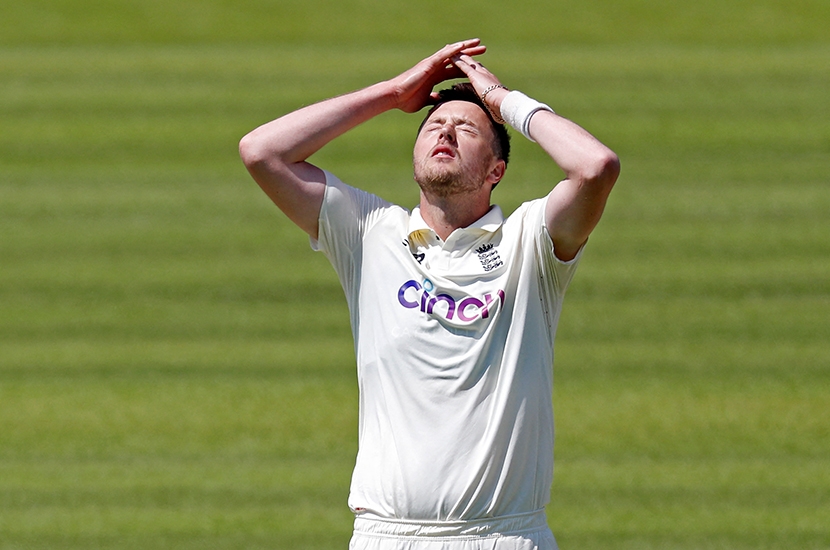One of the more egregious innovations of Chairman Mao’s cultural revolution was something called the ‘struggle sessions’. This involved the ritual public humiliation of anybody the local bigwigs had turned against — often in sports stadiums. The elderly Yangtze swimmer would have smiled approvingly at what has happened to Ollie Robinson, the England fast bowler who was forced to read out an apology on the eve of his first Test match for some daft and obnoxious remarks he made eight years ago on Twitter.
He has now been banned, and something with the sinister title of the ‘integrity unit’ is poised to investigate further. But investigate what exactly? Had Robinson done a couple of years inside for, say, robbery all those years ago, you wouldn’t be allowed to mention it under the terms of the Rehabilitation of Offenders Act. That’s a real crime with real victims. But a bit of rubbish, however grubby, on social media? It seems wholly out of proportion for Robinson’s Test career to be placed in jeopardy.
Our defence looks shakier than the Prime Minister’s wedding vows
The Robinson affair is one of several hot-button moral issues at the heart of elite sports. Taking the knee is another. The unpleasant booing at the start of England’s recent friendlies in the run-up to the Euros is about to become a big problem. If taking the knee — an act of great courage and defiance in America, where there is savage and often deadly racism — can prove so divisive for fans in Britain, is it doing the right job? Is it more than gesture politics? And could it be doing more harm than good?
English football clearly has a huge problem with racism, as anyone who has spent more than a few minutes surrounded by supporters at a football match will tell you, and the game’s authorities have done virtually nothing to tackle it over decades. The England manager, Gareth Southgate, is an honourable and decent man anxious to persuade fans to unite around his players, and the England team is full of idealistic young men who do a great deal of unheralded good work in the community. But is taking the knee the right action at a time when those who boo are now getting publicity they could barely have dreamed of?
Anyway, bring on the Euros. Has Gareth got it? I hope he’s not going to be too cautious to use the jewels at his disposal in the most effective way possible. Our defence looks shakier than the Prime Minister’s wedding vows. Italy seems a good bet to me: they know how to win things; they are a tasty 11-1; sadly Kevin Lasagna didn’t get a call up.
Naomi Osaka, the outstanding tennis player who decided to pull out of post-match media interviews, aroused a frenzy of fury about a pro’s obligations. You can make a good case either way: very little of any interest is said at these pressers, and if Osaka doesn’t want to pitch up for them, that’s fine by me. She knows the rules and must accept the consequences. Still, she’s better at dealing with inane questioning than most. She was once asked about having the same name as the Japanese city. ‘Every-one born in Osaka is called Osaka,’ she said. ‘Is that true?’ asked the journo. ‘No,’ said Osaka. Set and match.
It’s good to know Des Lynam is alive and kicking. Kicking pretty impressively in fact. Des has at times looked a forlorn figure since stepping aside as the pre-eminent anchor in sport. But in a riveting interview with the Telegraph at the weekend, he showed he’s still full of vigour, particularly when it comes to the state of the modern BBC and its sports coverage. ‘It’s a minority sports channel now,’ he said. ‘The golf has gone, the Grand National has gone, Formula 1 has gone. It’s Wimbledon… and forget it.’ Couldn’t agree more, Des.







Comments